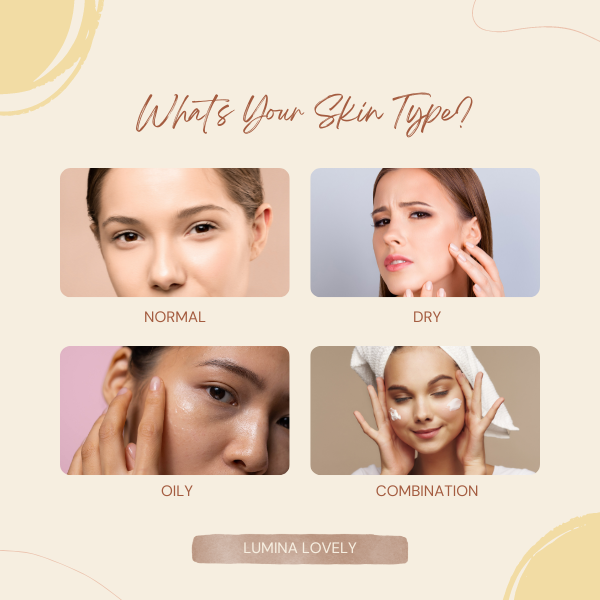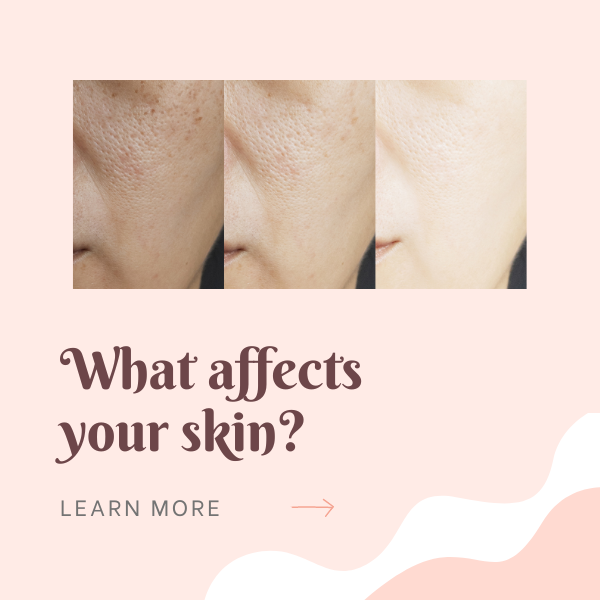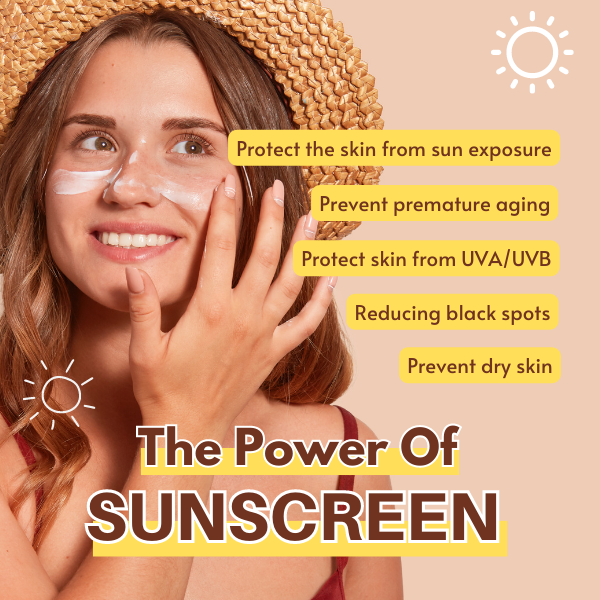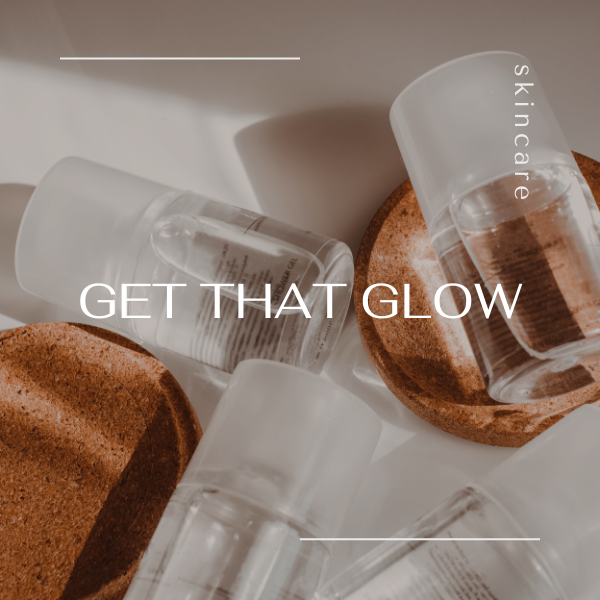Are you looking for a quick, easy guide to determine your skin type? In this blog post, we break down everything you need to know about skincare.
Understanding different skin types
Our skin is the body’s first line of defense against harmful environmental toxins. However, not all skin is the same, and each individual has a unique skin type. That’s why understanding your skin type is crucial to create the best skincare routine that works for you.
What are the different skin types, and how to identify them?
Your skin type is determined by the amount of sebum your skin produces. The four main skin types are dry, oily, combination, and sensitive.
Dry skin
You might have dry skin if you’ve noticed your skin feeling tight, rough, or flaky. This happens when your skin can’t produce enough sebum to keep your skin moisturized and healthy.
Dry skin can also cause redness, itching, and a dull appearance. People might have dry skin for various reasons, such as genetics, weather conditions, or simply getting older.
But don’t worry; plenty of skincare products and tips help you combat dry skin keeping your skin smooth and hydrated.
According to a survey, 69% of Americans struggle with dry skin in cold winters, and 79% of Americans say they feel better after following a skincare routine.
It’s frustrating to find the right products for your dry skin type. However, CeraVe is a brand formulated explicitly with dry skin in mind. Their products are designed to be gentle, non-irritating, and non-comedogenic, making them an excellent choice for people with dry skin.

Oily skin
Does your skin often look shiny and feel greasy to the touch?
If so, you may have oily skin. This means that your skin produces excess sebum, which can lead to a greasy texture and enlarged pores, blackheads, and acne breakouts. Factors such as genetics, hormonal changes, or a humid environment can cause oily skin.
Oily skin can be challenging, but it’s a common skin type affecting people of all ages and genders. While some people view oily skin as harmful, excess sebum production can be a good thing in moderation.
FYI: American Academy of Dermatology Association suggests to face wash your face every morning, evening, and after exercise, if you have an oily skin type. Moreover, use oil-free and water-based makeup to prevent breakouts.
Combination skin
Combination skin is a bit of both world, with some areas of your skin being dry and others being oily. People with combination skin typically have a more oily T-zone (forehead, nose, and chin) and drier cheeks.
This can make finding the right skincare routine tricky, but don’t worry, you’re not alone! Research has revealed that combination skin is the most common skin type.
Use gentle and non-drying cleansers to manage your skin. Focus on hydrating the drier areas while using oil-free products on the oily T-zone.
A bit of trial and error might be needed to find what works best for you, but with some patience and experimentation, you can find the perfect routine to keep your skin looking and feeling its best.
Skincare experts suggest avoiding products with excessive fragrance and exfoliating the T-zones for people with a combination skin type.
Sensitive skin
Have you ever experienced easily irritated skin?
That’s what sensitive skin is all about. It can cause redness, itching, and even stinging sensations, which can be a real pain.
And that’s not all – sensitive skin can also lead to dryness, flakiness, and breakouts.
It’s usually caused by a combination of genetics, environmental factors, and using harsh skincare products. So, choose gentle and soothing products that won’t aggravate your skin further.
Watch skincare expert, Hyram, talk about tips and tricks for sensitive skin types.
Factors that influence skin type
From genetics to lifestyle choices, there are a ton of things that can affect how your skin looks and feels. Understanding these factors to make informed decisions about your skincare routine.

Genetics
Your genes play a significant role in determining your skin type. You are also more likely to have dry skin if your parents have dry skin. Similarly, if your parents have oily skin, you are more likely to have oily skin.
According to a study, 60% of skin aging variation is genetic, and 40% is due to non-genetic factors.
Age
As you age, your skin undergoes several changes that can affect your skin type. As you get older, your skin produces less sebum, which can lead to dry skin—additionally, collagen and elastin production decrease with age, leading to wrinkles and fine lines.
Hormones
Hormonal imbalances can affect your skin type. During puberty, hormonal changes can lead to oily skin and acne breakouts. Similarly, hormonal changes during pregnancy and menopause can affect your skin type.
Environment
Environmental factors such as humidity, temperature, and pollution can affect your skin type. Exposure to the sun’s UV rays can lead to dryness and premature aging, while pollution can lead to clogged pores and acne breakouts.
Dermatologists recommend using sunscreen in your daily skincare routine.
Some of the top suggested sunscreens are
- La Roche-Posay Anthelios Melt in Milk Body & Face Sunscreen SPF 60
- Supergoop! Glowscreen
- Glossier Invisible Sheild SPF 35

Importance of knowing your skin type for skincare
You can choose products tailored to your specific needs when you know your skin type.
For example, if you have dry skin, you’ll want to look for products that contain hydrating ingredients like hyaluronic acid. On the other hand, if you have oily skin, you’ll want to avoid heavy, oil-based products that can clog your pores.
Knowing your skin type helps you choose the right products and save money on products that won’t work for you. If you’re unsure what kind of skin you have, you may try many products that don’t do anything for your skin.
Identify your skin type to narrow down your options, and focus on products that are more likely to be effective.

Common misconceptions about skin type
Several misconceptions surround skin type, leading to confusion about skincare regimens. These common misconceptions are:
Oily skin does not need moisturizer
Contrary to popular belief, oily skin also needs moisturizer. A lightweight, oil-free moisturizer can help balance sebum production and prevent clogged pores.
Dry skin needs exfoliation
While exfoliation is essential in maintaining healthy skin, over-exfoliating dry skin can lead to further dryness and irritation. Gentle exfoliators such as chemical exfoliants can help remove dead skin cells without irritating them.
Combination skin needs separate skincare products
Combination skin does not need different skincare products for other face areas. Using a balanced skincare regimen that caters to dry and oily face areas can help maintain healthy skin.
Takeaway
Healthy skin is not a one-size-fits-all approach; it requires a personalized skincare regimen that works for your skin type. Understanding your skin type is crucial in determining the best skincare regimen that works for you. Identify your skin type and understand its characteristics. Always choose skincare products that cater to your skin’s specific needs and prevent skin issues.


